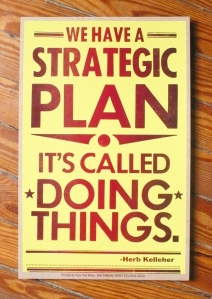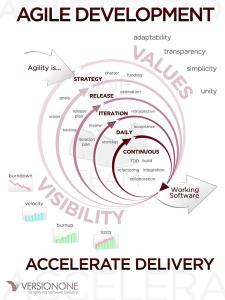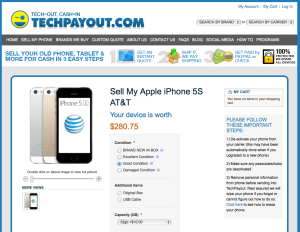Announcing Pillars.io, an exclusive community for technology managers June 26, 2015
Posted by Brian Link in startups.Tags: entrepreneur, internet startups, job search
comments closed
If you are a manager of any kind in the software and technology world, please take a look at this new startup, Pillars.io. They’re building something that will have a huge impact on how technology managers go about finding their next job, even if you’re not actively looking today. Pillars knows how to accurately describe the important and subtle differencs to the breadth and depth of your skills and experience and will help you define exactly what kind of technology manager you are so you can stop getting spammed with inappropriate job inquiries and set yourself up to land the perfect job. Here’s a quick blurb from their site. Please read the full text at Pillars and complete the survey to help them as they build out this product! Thank you!
please take a look at this new startup, Pillars.io. They’re building something that will have a huge impact on how technology managers go about finding their next job, even if you’re not actively looking today. Pillars knows how to accurately describe the important and subtle differencs to the breadth and depth of your skills and experience and will help you define exactly what kind of technology manager you are so you can stop getting spammed with inappropriate job inquiries and set yourself up to land the perfect job. Here’s a quick blurb from their site. Please read the full text at Pillars and complete the survey to help them as they build out this product! Thank you!
Pillars of a Great Technology Manager
We believe all manager roles in technology are amazingly complex and to be truly great, a technology manager needs to be extremely well-rounded and an expert in many things. We call these things the Pillars of a Great Technology Manager. So whether you are a first time tech lead, an experienced software development manager or any kind of technology manager in the field of software, IT, mobile and the Internet, you need to have incredible breadth and depth to your skills and experience across these pillars:
- PEOPLE: the ability to manage a team, hire, fire, mentor and coach; be a career guide and the culture advocate;
- PROCESS: the owner of all processes, the agile change agent or scrum master, obstacle remover and facilitator;
- TECHNOLOGY: the master of many hands-on skills, tech strategy, scalable architectures and solver of the team’s toughest problems;
- PRODUCT: the lean thinker, visionary and roadmap planner, subject matter expert and end-user advocate;
- EXECUTION: the owner of budget, risks and on-time delivery; the coordinator, expectation setter and controller of operations and logistics.
And don’t forget to give ’em your email address if you’re interested in learning more later when they launch
Apple iPhone 5S Resale Value August 28, 2014
Posted by Brian Link in apple.Tags: iPhone, upgrade
add a comment
Doing my annual analysis of upgrading my iPhone. I’m still not sure if I *can* upgrade my phone or not – will be calling AT&T shortly (att.com gladly tells me I can upgrade to their AT&T Next program but I’m not interested). So, I figured my research may be helpful to others – pretty sure prices on iPhone 5S will drop very quickly as the new iPhone 6 launch approaches.
There’s an interesting Wall Street Journal article that covers some high level stuff, but I wanted to see the specifics myself. You may not have the exact same phone as me, but the numbers should be indicative of how each of these services compare I’d guess. I’ve upgraded once with Gazelle, once with TechPayout and last time the Apple Store paid me $10 more in person than whatever service I was about to use so I used them instead (Apple is likely to do the same thing this year, but I suspect you may get more if you act quickly).
I used my iPhone 5S (AT&T, 32GB, Good Condition – some minor scratches, no damage, No accessories included) and came up with the following prices on these services today on Aug 28, 2014:
- ItsWorthMore.com: $310.00
- TechPayout.com: $280.75
- Gazelle.com: $260.00
- Glyde.com: $256.00
- uSell.com: $236.80
- Apple: $225.00 (iPhone 5 only?)
Columbus Geek Night January 14, 2014
Posted by Brian Link in Internet culture, startups.add a comment
There’s a lot of events in town, but it’s rare to find a good cross-section of passionate technologists in a purely social meet-up. There are many places software developers come together and interact, but it’s often in the context of something else: Startup Weekend, Code Mash, Code and Coffee, startup pitch events, Tech Columbus or individual meet ups for smaller groups on their own like agile, PHP, ruby, hadoop, etc.
We have a lot of great talent in Columbus and I’m hoping to introduce something interesting I found while living in Providence, Rhode Island. A no-agenda, completely independent casual get-together for software engineers. If this sounds interesting, please check it out and join us: http://columbusgeeknight.wordpress.com. The first event will be Jan 22, 2014.
I’m also hoping that some subset of us can drive this thing forward, not just me or any one company. Please let me know if you’d like to get involved.
See you there.
What do you really *love* on the Internet? June 29, 2012
Posted by Brian Link in agile, Internet culture, startups.add a comment
There’s a few things that I have come across on the interwebs recently that have inspired this blog post. And I post pretty rarely, so this feels like a momentous occasion.
First, I clicked through the fun little app called “Fish – a tap essay”. It’s a great summary in poetic dramatic fashion of how we are overwhelmed by liking and sharing online and asks the question “what does it mean to love something on the Internet” when most sharing is fleeting and forgotten (reminds me of the business case for Toobla, a previous startup I worked with, which everyone has surely forgotten.) In short, the stuff you love is the stuff you come back to over and over again. Or share with multiple people over time. The apps on your phone you use everyday, those great reference sites or blog posts or articles that you repeatedly refer people to. These are the things that shine above the everyday “like”.
I clicked through the fun little app called “Fish – a tap essay”. It’s a great summary in poetic dramatic fashion of how we are overwhelmed by liking and sharing online and asks the question “what does it mean to love something on the Internet” when most sharing is fleeting and forgotten (reminds me of the business case for Toobla, a previous startup I worked with, which everyone has surely forgotten.) In short, the stuff you love is the stuff you come back to over and over again. Or share with multiple people over time. The apps on your phone you use everyday, those great reference sites or blog posts or articles that you repeatedly refer people to. These are the things that shine above the everyday “like”.
That little “Fish” app encourages us to think about what really matters when you share online and I like that. So I think I’ll publish a few of these things that I think matter.
Here’s a few of the things I’m most often referring people to are on entrepreneurship and building Internet startups. Here’s some resources I hope you find useful.
* Early Stage Startup Advice and Funding:
This blog post I wrote last week covers a lot, and I’ll keep adding to it over time just for fun
* Books for Entrepreneurs:
Here’s a few different sources of good books on Quora.
And an excellent condensed list here for startup entrepreneurs.
* Must Read Startup Resources Online:
http://steveblank.com/tools-and-blogs-for-entrepreneurs/
* Lean Startup:
http://leancanvas.com/ – this one piece of paper is more powerful than any 20 page business plan
* “Brave New World of Digital Intimacy” – First time I saw the phrase ambient awareness:
http://www.nytimes.com/2008/09/07/magazine/07awareness-t.html?pagewanted=all
* My Favorite Awesome Apps:
Amazon Mobile – price check anything anywhere. and order stuff you know, whenever you think of it.
Evernote – this app is my brain so I don’t have to keep things in my brain
Pandora – addicted to the discovery and familiarity at the same time
PocketPedia3 – bring your DVD catalog with you anywhere so you don’t buy dupes!
Scrabble – nothing beats the real thing with words, friends
Starwalk – augmented reality astronomy interactive guide. shows the stars’ names and constellations, locations of planets as you hold it and rotate it over your head at night
Zite (iPad) – this is my secret news source. only tool that gets me and my passions (startups, entrepreneurship, particle physics, cosmology, apple, disruptive technology)
Image credit: Joe Stump
Early Stage Startup Advice and Raising a Seed Round with Crowdfunding June 20, 2012
Posted by Brian Link in entrepreneurialism, startups.Tags: angel investiment, crowdfunding, entrepreneur, investing, seed funding, startups
2 comments
Many of the entrepreneurs I meet ask about how to get funded. It’s the inevitable first hurdle every entrepreneur must cross. And it’s often the first place they fail and return to their cubicle jobs… for good  reason, it’s pretty hard. Here’s a few basics I assume everyone knows already:
reason, it’s pretty hard. Here’s a few basics I assume everyone knows already:
- Build a compelling product with a compelling business model. (Know your market, build the MVP first, price it appropriately or use an appropriate business model. Revenue beats users, IMO. But read this too.)
- Show some kind of traction. Attract a team. Win your first paying customers. Get enough users or downloads of your app. Whatever is relevant. (And more is required typically the higher amount of money you’re trying to raise)
- Build your own relationships with investors. Find all your local people. Get on AngelList and follow investors. Research investors that are in your space. Follow them on Twitter. Read everything you can. Leverage LinkedIn to build connections. Meet them and ask for advice first, not money. Get introductions through strong connections. Investors invest in friends and friends of friends first (they’re human too).
- Build a killer pitch deck. What problem do you solve? What’s the solution? Make sure it’s a pain killer not a vitamin. Keep it simple. If it can’t be said in a sentence or two, your pitch is too complicated. Tell everyone about your pitch. Take advice from your wife, Mom, advisors, and guy at the bar until it’s perfectly clear and says something compelling. Consider putting a professional 2 minute video on your site.
- Seek out advice proactively. Have coffee multiple times a week with helpful people. Make new connections. Be just as giving in helping others. Engage in local meetup groups. Startup weekend. Conferences and events. But don’t overwhelm yourself networking, it should be a constant but limited amount of your time.
- Share your idea. When talking to advisors, peers, investors, friends, etc. please don’t hesitate to discuss your idea. Too many entrepreneurs fail because they don’t get critical feedback early enough. If you’re asking people to sign NDAs, you’re doing it wrong. Consider patents if you need to.
- Have an expert. No matter what industry you’re in or how much you think you know, it’s always better to have someone on your team who has specific, credible experience in your space. If it’s not a core team member, they should at least be a dedicated advisor or board member.
- Give away your equity. At very early stages where you’re most likely to fail, it’s important to build the right team. If you don’t have a technical co-founder with skin in the game, you will fail. If equity will entice someone to work on your project as hard as you are, for heaven sake, give it away. If you haven’t landed your first seed round of funding and you’re afraid to give away 1% or even 10% for some critical resource/advisor/service provider/technology partner, you’re doing it wrong. Be smart, and seek advice of those who have done this before, but definitely don’t be stingy. 100% of nothing is still nothing.
Bootstrapping is best possible solution, if you can afford to fund your own startup. Plenty of great success stories start here, but it’s a lot slower and harder to build a startup while working a full-time job. Friends and family is where most entrepreneurs go next. And if you run a Lean Startup as you should, raising $100K or less can go a very long way to getting a new startup off the ground.
You likely don’t have a dozen rich friends you can borrow 10 to 20 grand from each, and will therefore be looking for funding. You can try to find those angels: in your backyard, in a local ACA group, or on angel.co. Or you can even try to find Venture Capital. But unless you’re a rock star, are looking to raise an A/B/C round or have a personal relationship, that’s extremely unlikely.
What’s left is crowd funding. There are many new crowd funding options emerging for entrepreneurs, especially as the JOBS Act becomes a reality. I’m not sure how well each of these will work today, but I suspect going forward they become one of the more popular options for early stage startups looking to raise initial rounds of cash. You might first look at the National Crowdfunding Association to learn some basics: http://nlcfa.org/crowdfund-101.html
Startup Fundraising Options in America
- 40billion.com – Raise money. Build dreams. Since 2008, early crowd funding platform.
- CrowdTilt.com – Group funding, designed to raise funds for a group of people to do stuff together.
- EarlyShares.com – Equity based crowd funding platform.
- EquityNet.com – Business plan software and Angel Network.
- Fundable.com – Designed for startups. Built by people I know in Columbus, Ohio.
- FundaGeek.com – Crowdfunding for technical innovation
- Fundrazr.com – Reach more people, raise more money.
- GoFundMe.com – General fundraising platform for individuals.
- GrowVC.com – Global startup fundraising plus nurturing ecosystem, raising up to $1M
- Indiegogo.com – Fundraising for more than just films.
- Invested.in – Helps anyone raise money for anything
- Kickstarter.com – Perhaps not originally intended to fund startups, but has been used as such.
- MicroVentures.com – Connecting Angel investors and startups.
- OnSetStart.com – They have a free crowd funding bible available too if you help promote it
- PeerBackers.com – Funding entrepreneurs to raise funding from peers
- RocketHub.com – Launch, Fund and Fly!
- SoMoLend.com – Lend. Borrow. Grow. People investing in people.
- Start.ac – Crowdfunding platform with mentors. US based.
- TechMoola.com – Project fundraising in the technology space
Nonprofit and Charitable Fundraising Options
- CrowdRise.com – Designed for charities
- FirstGiving.com – Help people raise money for causes they care about
- Razoo.com – Nonprofit donations
International Fundraising Options
- BuzzEntrepreneur.com – Social funding platform since 2009
- CrowdCube.com – Located in the UK. Has a number of success stories already.
- FundIt.ie – Ireland’s platform for funding people with great ideas
- FundingCircle.com – Marketplace where people lend to businesses, in the UK.
- GrowVC.com – Global startup fundraising plus nurturing ecosystem, raising up to $1M
- Idea.me – Argentina, Chile, Mexico, Uruguay, USA Latino
- iPledg.com – Located in Australia.
- MyNBest.com – Spain’s crowdfunding platform.
- PleaseFund.us – UK crowdfunding platform.
- Plebs.ca – Located in Canada. Still pre-launch. See http://unbouncepages.com/earlybirds-launch/
- Pozible.com – Australian crowdfunding platform and community
- StartersFund.com – Greece’s global crowdfunding platform and virtual business incubator
There’s plenty of resources out there. A few worth reading on the topic:
- http://mashable.com/2012/06/18/crowdfunding-platform-business/
- http://500.co/2010/11/02/unconventional-ways-to-bootstrap-your-startup-idea/
- http://techcrunch.com/2012/05/08/crowdfunding-state-of-the-union/
- http://crowdsourcing.org and their Research Report on Crowdfunding
- http://blogs.hbr.org/cs/2012/05/crowdfunding_is_a_critical_res.html
- http://myventurepad.com/node/101683
Photo credit: http://www.flickr.com/photos/68751915@N05/
An Entrepreneurial State of Mind March 12, 2011
Posted by Brian Link in entrepreneurialism, startups.add a comment
This week is the big South by Southwest conference in Austin, TX where every well-known geek (good definition here) in the country converges to mingle, party and play with the latest tech and apps.  Some even attend the conference and learn something. I’ll miss hanging in the blogger lounge meeting all the luminaries I’ve come to enjoy keeping up with online.
Some even attend the conference and learn something. I’ll miss hanging in the blogger lounge meeting all the luminaries I’ve come to enjoy keeping up with online.
And not being there at SXSWi makes me feel a little like I’m ignoring that entrepreneurial part of myself I enjoy exercising occasionally. I’ve also recently removed myself from the startup ratrace, having worked for one startup or another over the last 5 or 6 years. My new job is with a company called KACE owned by a big stable company, Dell. And I gotta say working from home with a great job with great benefits is an awesome thing – stability goes really well with families 🙂
But the point of my blog post today, and what I’ve recently started to reinforce and remind myself of, is that you don’t have to give up stability and join the ranks of startup enthusiasts full-time to be an entrepreneur. There’s plenty you can do on the side to keep that entrepreneurial dream alive. In fact I know plenty of people that do great startup work on the side: like the guys from Big Kitty Labs, my friends at weBuild, students who build some killer iPhone apps and web apps and plenty of people from TechLife Columbus.
What you really need to do is just start doing something.
Picture credit: Baltimore StudiosGreat Business and Agile Books for Startups January 26, 2011
Posted by Brian Link in agile, startups.add a comment
I keep running into great sources  of information. List of books I should read that I rarely find time for. I’ll post a few great lists I’ve found. I’ve been wanting to build myself a list of must-reads that I hope you’ll find helpful too.
of information. List of books I should read that I rarely find time for. I’ll post a few great lists I’ve found. I’ve been wanting to build myself a list of must-reads that I hope you’ll find helpful too.
Here’s a list of Agile related books that I recommend. Please add more in the comments – I’m interested in finding new books too!
- Succeeding with Agile: Software Development Using Scrum
– Mike Cohn
- Implementing Lean Software Development: From Concept to Cash
– Mary and Tom Poppendieck
- Extreme Programming Explained: Embrace Change (2nd Edition)
– Kent Beck
- The Art of Agile Development
– James Shore
- Agile Web Development with Rails
– Sam Ruby, Dave Thomas, David Heinemeier Hansson
- Agile Project Management with Scrum (Microsoft Professional)
– Ken Schwaber
- User Stories Applied: For Agile Software Development
– Mike Cohn
- Agile Estimating and Planning
– Mike Cohn
- Agile Software Development with Scrum (Series in Agile Software Development)
– Ken Schwaber, Mike Beedle
- Agile Project Management: Creating Innovative Products (2nd Edition)
– Jim Highsmith
Must-read books for startups (and general business books) great list from Quora:
- The Four Steps to the Epiphany – Steven Gary Blank
- The Entrepreneur’s Guide to Customer Development: A Cheat Sheet to the Four Steps to the Epiphany – Brant Cooper, Patrick Vlaskovits
- Business Model Generation: A Handbook for Visionaries, Game Changers and Challengers – Yves Pigneur and Alex Osterwalder
- Founders at Work – Jessica Livingston
- Escape from Cubicle Nation: From Corporate Prisoner to Thriving Entrepreneur – Pamela Slim
- My Start-Up Life: What a (Very) Young CEO Learned on His Journey Through Silicon Valley – Ben Casnocha
- Influence: The Psychology of Persuasion – Robert Cialdini
- Crossing the Chasm – Geoff Moore
- The Innovator’s Dilemma – Clayton Christensen
- Getting to Plan B – Randy Komisar & John Mullins
- The Art of the Start – Guy Kawasaki
- Venture Capital and the Finance of Innovation – Andrew Metrick
- Viral Loop – Adam L. Penenberg
- The Monk and the Riddle – Randy Komisar
- The PayPal Wars – Eric M. Jackson
- The Facebook Effect – David Kirkpatrick
- Once You’re Lucky, Twice You’re Good – Sarah Lacyhttp://amzn.to/gd0sJ4
- Made to Stick – Chip Heath and Dan Heath http://amzn.to/eo6ndK
- Landing Page Optimization Tim Ash http://amzn.to/gYpVPY
- Web Analytics 2.0: The Art of Online Accountability and Science of Customer Centricity Avinash Kaushik http://amzn.to/etvEZe
- The 48 Laws of Power – Robert Greene http://amzn.to/h5oiYa
- The Non-Designer’s Design Book – Robin Williams http://amzn.to/hXtbyL
- Getting Real – Jason Fried, David Hansson, Matthew Lindermanhttp://amzn.to/gdY3VX
- Dreaming in Code – Scot Rosenberg http://amzn.to/dX5MSq
- Do More Faster – David Cohen, Brad Feld http://amzn.to/fwdbH5
- RockStar Business – Adriaan Pienaar http://amzn.to/dKipra
- Crush It – Gary Vaynerchuk http://amzn.to/fz2e2b
- Fascinate – Sally Hogshead http://amzn.to/i9wgEY
- The Theory of Fun – Raph Koster http://amzn.to/dEt2n1
- Lincoln on Leadership – Donald Phillips http://amzn.to/fmLeC9
- The Paradox of Choice – Barry Schwartz http://amzn.to/gwpAkd
- How We Decide – Jonah Lehrer http://amzn.to/gRYTUr
- Courage: The Backbone of Leadership – Gus Lee http://amzn.to/gzEUVV
- The E-Myth Revisted – Michael Gerber http://amzn.to/glZPcE
- Don’t Make Me Think – Steve Krug http://amzn.to/eiKUIC
- The Mythical Man Month – Fred Brooks http://amzn.to/hhKTR0
- Difficult Conversations: How to discuss what matters most – Doug Stone et al. http://amzn.to/f9Xkeg
- Information Rules: A Strategic Guide to the Network Economy – Carl Shapiro http://amzn.to/hn4Wbj
- Only the Paranoid Survive – Andrew Grove http://amzn.to/ev5Z6d
- Delivering Happiness – Tony Hsieh http://amzn.to/dJNO2X
- Startup: A Silicon Valley Adventure – Jerry Kaplan http://amzn.to/fTnqHe
- The Nudist On The Late Shift – Po Bronson http://amzn.to/eCtiAV
- The Microsoft Way – Randall Stross http://amzn.to/ekJ8P3
- Inside Intel – Tim Jackson http://amzn.to/fhVS0w
- Accidental Empires – Robert X. Cringely http://amzn.to/gf0hTa
- Wisdom Of Crowds – James Surowiecki http://amzn.to/ekOH0A
- Outliers – Malcolm Gladwell http://amzn.to/eIM0Cx
- Where Good Ideas Come From: The Natural History of Innovation – Steven Johnson http://amzn.to/fVFgdi
- The Seven Habits of Highly Effective People by Stephen Coveyhttp://amzn.to/e3Z1Yp
- Blue Ocean Strategy: How to Create Uncontested Market Space and Make Competition Irrelevant – W. Chan Kim, Renee Mauborgnehttp://amzn.to/dV0Upi
- The Deviant’s Advantage – Ryan Matthews, Watts Wackerhttp://amzn.to/dMlpko
- Good to Great by Jim Collins http://amzn.to/e5oALJ
- Drive: The Surprising Truth About What Motivates Us by Dan Pinkhttp://amzn.to/hnmyz
- Crucial Conversations Kerry Patterson et al. http://amzn.to/hhQ41Y
- Mindset: The New Psychology of Success – Carol Dweckhttp://amzn.to/eygzLp
- Influencer: The Power to Change Anything – Kerry Pattersonhttp://amzn.to/dYpyAM
- Orbiting the Giant Hairball: A Corporate Fool’s Guide to Surviving with Grace – Gordon MacKenzie http://amzn.to/fH5AYj
- Hope for the Flowers – Trina Paulus http://amzn.to/icpQHb
- Finding fertile ground – Dr. Scott A. Shane http://amzn.to/guIkjN
- Making Ideas Happen – Scott Belsky http://amzn.to/dUSmUk
- Rework – Jason Fried, David Heinemeier Hansson http://amzn.to/gZI8wW









